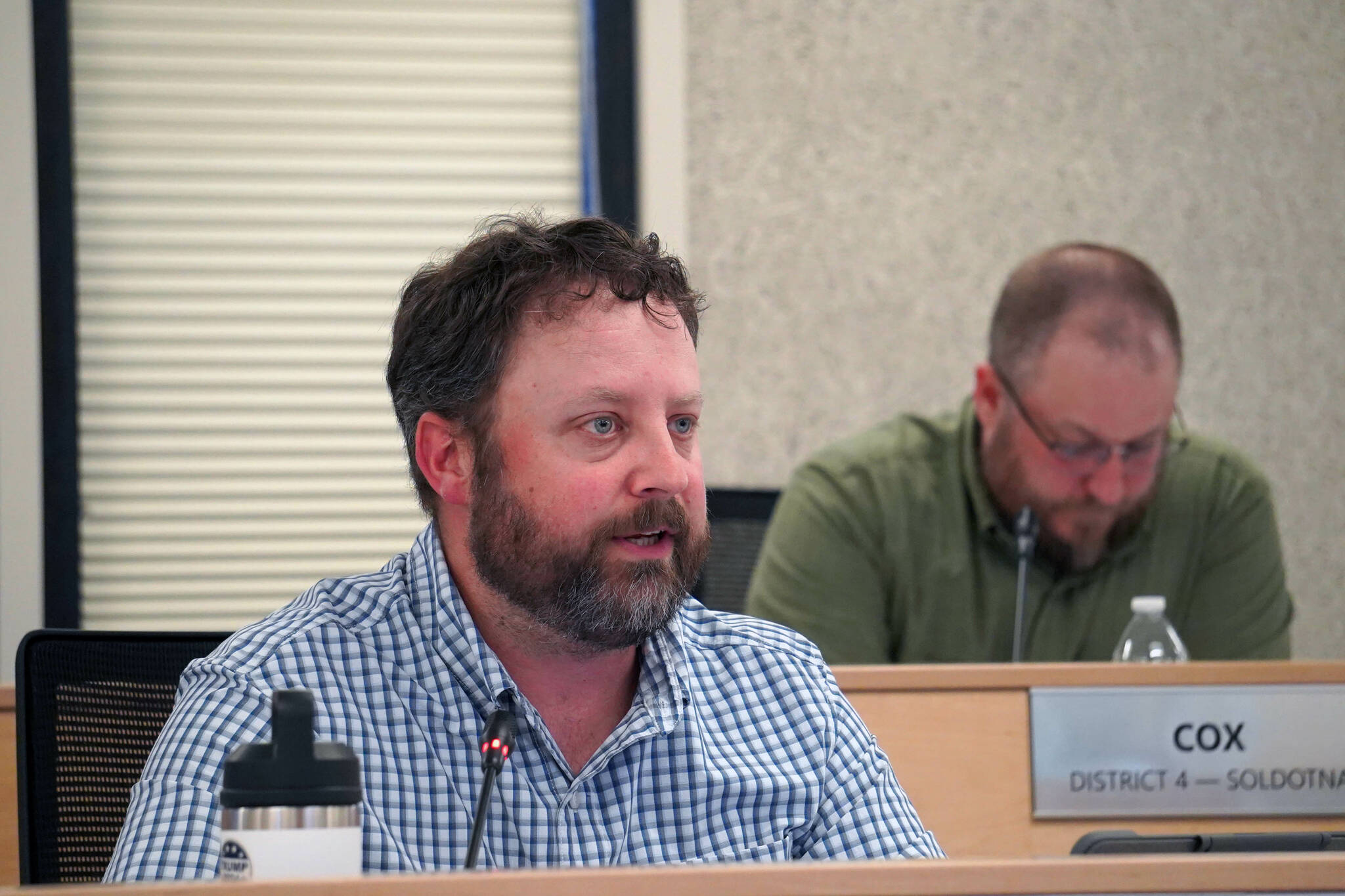An effort to introduce a pair of ordinances that would have established a tobacco product excise tax and then use its revenue to fund a child care grant funding program failed in the Kenai Peninsula Borough Assembly during their last regular meeting on Tuesday, June 4.
The first ordinance, which would have established the tobacco tax, was voted down 5-3 before introduction. With its cited funding source now missing, the second ordinance establishing the child care grant funding program was withdrawn by its sponsor.
Ordinance 2024-15, sponsored by Assembly President Brent Johnson and assembly members Cindy Ecklund and Mike Tupper, sought to combat the lack of affordable, accessible and quality child care and the adverse impacts child care shortages have on available workforce in the borough.
Ordinance 2024-14 proposed a tobacco tax to fund the child care ordinance. It would have taxed “all cigarettes and tobacco products” at a rate of $0.05 per cigarette or 35% of the price of tobacco products.
The ordinance also includes language that defines vapes and e-cigarettes as tobacco products that would have been included in the tax.
During a committee meeting ahead of the assembly’s regular Tuesday meeting, Ecklund said the tax would generate around $4 million each year.
“The reason for bringing this forward is to establish funds for several needs throughout the borough,” Ecklund said.
According to Ecklund, 34% of the excise tax would have gone toward maintenance and care for borough-owned school district buildings, 30% would go toward funding startup and existing child care facilities within the borough, 15% would go toward maintaining and improving borough-owned administrative buildings, 1% would go to Alaska’s Tobacco Quit Line for “educational purposes,” and the remaining 20% would go into the borough’s general fund.
“The development of this ordinance came about because we were becoming aware of the child care crisis, and trying to find a way to help them,” she said. “The Anchorage municipality and borough had just approved taxing marijuana for child care funding … that was an example that we thought might work.”
Ecklund also cited 22 other boroughs and cities within the State of Alaska that have already implemented an excise tax on tobacco or tobacco products.
Both ordinances were set for introduction during the June 4 meeting and originally scheduled for a public hearing on July 9. Neither saw support or advancement by the group. The two ordinances were moved off the assembly’s consent agenda by assembly member Bill Elam for further consideration.
“I do believe — specifically (Ordinance 2024-15) — is well out of reach for the powers that we have in the borough,” he said. “There’s definitely a conversation that could be had about the various reasons and funds and where those go, but if you look at the budget that the mayor has put together, we’re doing well with what we’ve got. We’re funding the core services that the borough has provided. Getting into the social programs is consistently something that we haven’t done.
Introduction of the proposed tobacco excise tax was defeated in a 5-3 vote by the assembly. Johnson, Ecklund and Tupper voted in favor of introducing Ordinance 2024-14; assembly vice president Tyson Cox and assembly members Kelly Cooper, Bill Elam, Brent Hibbert and Ryan Tunseth voted to not introduce the ordinance. Assembly member Peter Ribbens was absent from the meeting.
Johnson said he supported the tobacco tax ordinance because he wanted to prevent children and teens from smoking. He said implementing a tax probably wouldn’t make people stop smoking, but he said he had reason to believe that a tax could lower the likelihood of young people starting.
“There’s going to be some kids that don’t get hooked on tobacco because we’ve raised the price,” he said. “It’s worth it to me.”
Opponents of the ordinance, including Tunseth, Elam and Cox, all said that the two ordinances would require the borough to step out of its lane and take on health and social responsibilities that it doesn’t and shouldn’t have as a second-class borough.
Kenai Peninsula Borough Mayor Peter Micciche said, during discussion on the ordinance, that the borough shouldn’t be making any efforts to police people’s decisions when those decisions aren’t affecting others. Raising a tax for the purpose of dissuading people from smoking would infringe on that, he said.
“This is a dangerous crossroads in the Kenai Peninsula Borough,” he said. “We chose to be a second-class borough. We must be on guard, move against these insatiable services.”
Without the funding secured through Ordinance 2024-14, the child care grant proposed under Ordinance 2024-15 was withdrawn by Ecklund and did not go before a vote by the assembly. Both Johnson and Tupper, as co-sponsors of the ordinance, concurred on its withdrawal from consideration.
Ecklund reiterated that by supporting new and existing child care centers through the borough, Ordinance 2024-15 was a way to support the borough’s economy.
“This is not about social services,” she said.
More information about Ordinances 2024-14 and 2024-15 can be found on the borough website at kpb.legistar.com.
Reach reporters Delcenia Cosman and Jake Dye at delcenia.cosman@homernews.com or jacob.dye@peninsulaclarion.com.

